Hi, I’m Farjad, and I’ve spent years helping marketers and small business owners grow their email lists and convert traffic into leads using proven strategies and a little help from OptinMonster (more on that later).
In this article, you’ll Learn:
- What Is Lead Generation?
- What Are the Different Types of Leads?
- B2B vs. B2C Lead Generation
- The Lead Generation Funnel (TOFU, MOFU, BOFU)
- Lead Scoring: Prioritizing Your Best Leads
- Lead Generation Strategies
- Converting Website Traffic into Leads
- How OptinMonster Helps You Generate More Leads
- Frequently Asked Questions
What Is Lead Generation?
Lead generation is the process of getting people genuinely interested in your product or service and turning that interest into potential sales.
Or, as marketing expert Neil Patel puts it:
“Lead generation is the process by which you generate interest, and place people in your sales funnel.”
In online marketing, that usually means collecting a visitor’s contact information — leads — like their email address or phone number. Once you have that connection, you can continue the conversation, nurture trust, and guide them toward becoming a customer.
That’s exactly what we specialize in at OptinMonster. For over a decade, we’ve helped marketers, entrepreneurs, and small business owners turn their website traffic into leads and customers by using proven tools like Exit-Intent® popups, floating bars, and targeted onsite messages.
What Are the Different Types of Leads?
The four main types of leads are Marketing Qualified Leads (MQLs), Sales Qualified Leads (SQLs), Product Qualified Leads (PQLs), and Service Qualified Leads. Each represents a different stage of readiness to buy, from awareness to conversion.
Not all leads are created equal. Marketers and sales teams use four main categories to identify how close a lead is to becoming a customer:
1. Marketing Qualified Lead (MQL)
An MQL is someone who has engaged with your marketing but isn’t quite ready to buy yet. They’ve shown interest maybe by downloading an ebook, attending a webinar, or subscribing to your newsletter, but still need nurturing.
Example:
A visitor downloads your “Lead Generation Checklist.” They’re interested, but not ready to talk to sales yet.
2. Sales Qualified Lead (SQL)
An SQL is further along the journey. They’ve taken an action that clearly signals purchase intent, such as requesting a demo, signing up for a free trial, or contacting your sales team directly.
Example:
Someone books a product demo through your website after reading a few case studies. They’re now a warm prospect ready for a sales conversation.
3. Product Qualified Lead (PQL)
A PQL is someone who’s used your product (often via a free or limited version) and has indicated interest in upgrading to a paid plan.
Example:
A free OptinMonster user who builds three popups and then clicks on the “Upgrade” button to unlock advanced targeting options.
4. Service Qualified Lead
A Service Qualified Lead comes through your support or success team. These are existing customers who express interest in expanding or upgrading their plan.
Example:
A current subscriber messages your support team asking about adding more campaigns or features, that’s a service-qualified lead.
B2B vs. B2C Lead Generation
Understanding whether you’re marketing to businesses (B2B) or individual consumers (B2C) also changes how you approach lead generation.
| Type | Audience | Example | Lead Gen Tactics |
|---|---|---|---|
| B2B (Business-to-Business) | Companies or professionals | A software firm selling CRM tools to agencies | Webinars, LinkedIn marketing, case studies, free demos |
| B2C (Business-to-Consumer) | Individual buyers | An ecommerce store selling meal kits | Social media ads, influencer campaigns, email offers |
Key takeaway:
- B2B lead gen focuses on education and long-term relationship building.
- B2C lead gen is usually faster, emotional, and driven by convenience or discounts.
Why This Matters
Understanding your lead types helps you:
- Qualify prospects faster
- Personalize follow-ups and automations
- Prioritize leads with the highest potential ROI
- Improve collaboration between marketing and sales teams
The Lead Generation Funnel (TOFU, MOFU, BOFU)
A lead generation funnel is a marketing framework that guides people from awareness to purchase. It has three stages: TOFU (awareness), MOFU (consideration), and BOFU (decision). Each stage uses different types of content to attract, educate, and convert leads.
Lead generation is not a single event. It is a journey that moves people from awareness to interest to action. Marketers often describe this journey as a funnel with three main stages: Top of the Funnel (TOFU), Middle of the Funnel (MOFU), and Bottom of the Funnel (BOFU).
Understanding each stage helps you create the right content and offers to convert visitors into qualified leads.
Top of the Funnel (TOFU): Awareness
At this stage, your goal is to attract as many relevant visitors as possible. These people are just realizing they have a problem or need. They are not ready to buy yet, but they are looking for information and ideas.
Your goal: Educate and build trust.
Best TOFU content examples:
- Blog posts answering common questions
- Educational videos and infographics
- Social media content
- SEO-driven guides and how-tos
Example: A blog post titled “What is Lead Generation and Why It Matters for Small Businesses.”
Middle of the Funnel (MOFU): Consideration
In this stage, your audience understands their problem and is exploring different solutions. They are comparing products, reading reviews, and evaluating approaches.
Your goal: Nurture leads with valuable information that builds authority and guides decision-making.
Best MOFU content examples:
- Case studies and success stories
- Webinars or virtual workshops
- Email nurture sequences
- Product comparisons and templates
Example: A downloadable guide titled “10 Proven Lead Generation Strategies That Convert.”
Bottom of the Funnel (BOFU): Decision
At this point, your prospects are ready to act. They have narrowed their options and want reassurance that your solution is the right fit.
Your goal: Convert leads into customers.
Best BOFU content examples:
- Free trials and demos
- Consultations or assessments
- Product comparison tables
- Testimonials and customer reviews
Example: A potential customer signs up for an OptinMonster free trial after reading about how other brands increased conversions by 40%.
Lead Scoring: Prioritizing Your Best Leads
Not every lead is equally ready to buy. This is where lead scoring helps. Lead scoring is a system that assigns points to each lead based on how they interact with your content or brand.
Example lead scoring model:
| Action | Score |
|---|---|
| Visits website homepage | +5 |
| Downloads an ebook | +15 |
| Attends a webinar | +25 |
| Requests a demo | +40 |
| Unsubscribes from emails | -20 |
When a lead’s score reaches a set threshold, they move from marketing-qualified to sales-qualified and are ready for outreach.
This process helps sales teams focus on the most valuable leads while marketing continues nurturing others.
Lead Generation Strategies
The most effective lead generation strategies combine inbound, outbound, and AI-powered tactics. Inbound methods like SEO and content marketing attract prospects, while outbound efforts such as paid ads and cold outreach drive awareness. AI tools then qualify and personalize outreach to convert leads faster.
The best strategies combine proven inbound and outbound methods with new AI-powered tools that help marketers connect with the right audience faster.
Below are the main categories of lead generation strategies that work today.
1. Inbound Lead Generation
Inbound marketing focuses on attracting potential customers by offering valuable, relevant content that answers their questions. Instead of chasing leads, you help them find you.
Effective inbound tactics:
- Content marketing: Publish helpful blogs, tutorials, or reports that solve real problems.
- SEO optimization: Target long-tail keywords like “how to generate leads online” to attract searchers with intent.
- Email marketing: Send personalized sequences that nurture leads over time.
- Webinars and guides: Educate your audience and capture sign-ups with gated content.
Example: A small business downloads a “Lead Generation Playbook” from your website after reading a blog post on traffic growth. That action turns a visitor into a marketing-qualified lead.
2. Outbound Lead Generation
Outbound marketing means reaching out directly to potential customers who may not know your brand yet. When done respectfully and strategically, it complements inbound marketing.
Effective outbound tactics:
- Cold outreach: Use personalized cold emails or LinkedIn messages that highlight specific pain points.
- Paid advertising: Run targeted PPC or social media ads that lead to optimized landing pages.
- Account-Based Marketing (ABM): Identify high-value accounts and create tailored campaigns for each.
- Events and conferences: Collect leads through speaking opportunities or in-person networking.
Example: A sales rep uses a prospecting tool to identify key decision-makers and sends a short, value-driven email sequence offering a free consultation.
3. Social Media Lead Generation
Social media remains one of the fastest ways to reach qualified leads and build relationships.
Best social strategies:
- Share short educational videos that show quick wins.
- Run lead form ads on LinkedIn, Facebook, and Instagram.
- Create polls or posts that start conversations around common industry challenges.
- Use retargeting to reconnect with visitors who engaged with your site but did not convert.
Example: A marketing agency runs a LinkedIn poll on “top lead generation challenges” and uses engagement data to follow up with targeted offers.
4. Partnership and Referral Programs
Word-of-mouth still works. Partnering with other brands or rewarding current customers for referrals can produce high-quality leads at a low cost.
Examples:
- Launch a referral program that gives discounts or credits.
- Co-host a webinars with an industry expert to share both audiences.
- Publish guest articles on trusted sites to reach new readers.
Example: OptinMonster collaborates with a digital marketing agency for a joint webinar, gaining hundreds of new business leads from the partner’s audience.
Converting Website Traffic into Leads
Once visitors arrive on your website, the next goal is to convert them into leads. Here are six lead generation strategies for how to generate leads:
1. Offer Lead Magnets
Lead magnets are powerful tools for capturing the attention of potential customers and encouraging them to share their contact information with you. These valuable resources or incentives, such as free trials, demos, eBooks, white papers, or exclusive content, act as a compelling exchange for their details. The key to an effective lead magnet is relevance and immediate value ensuring that the resource directly addresses a problem or need of your target audience. Strategically place these lead magnets on high-traffic areas of your website, such as your homepage, blog posts, or landing pages, to maximize conversions.
Also check out: How to Create a Lead Magnet: A Step-by-Step Guide (+Examples)
2. Create Landing Pages
Landing pages are standalone web pages created specifically for a marketing or advertising campaign. Unlike general webpages, landing pages have a single, focused goal: to capture leads. This is achieved by presenting a clear, compelling offer and a strong call to action (CTA) that encourages visitors to fill out a form or take another desired action. The best landing pages are optimized for a specific audience segment, product, or service and are designed to eliminate distractions, keeping the visitor’s attention on the conversion goal.
Also check out: Easy Landing Page Design Tips to Boost Conversions
3. Implement Live Chat and Chatbots
Live chat and chatbots provide real-time interaction with your website visitors, making it easier to address their questions and concerns immediately. This instant communication can significantly enhance user experience and reduce bounce rates. Live chat support can be particularly effective in converting visitors who are close to making a decision but need just a little more information or reassurance. Chatbots, on the other hand, can operate 24/7, offering automated responses to common inquiries and guiding users through your website to find what they’re looking for, thus capturing leads even outside business hours.
Also check out: Live Chat Best Practices: How to Streamline Customer Service
4. Optimize Website and Forms
Your website’s performance and design are critical factors in lead generation. A user-friendly, mobile-responsive website that loads quickly ensures a smooth experience for visitors, which is essential for keeping them engaged. Lead capture forms should be straightforward, asking only for essential information to reduce friction. Consider using progressive profiling, where you collect additional information from repeat visitors over time, rather than asking for too much upfront. Test different form lengths, button placements, and colors to find the most effective combination for conversions.
5. Showcase Customer Testimonials and Reviews
Social proof, in the form of customer testimonials and reviews, is a powerful tool for building credibility and trust with potential leads.Displaying positive feedback from satisfied customers on your website can reassure visitors about the quality and value of your products or services. Make sure to feature testimonials prominently on key pages, such as your homepage, product pages, and checkout pages. You can also create case studies that showcase how your product or service has helped other customers achieve their goals, further reinforcing your brand’s reliability.
How OptinMonster Helps You Generate More Leads
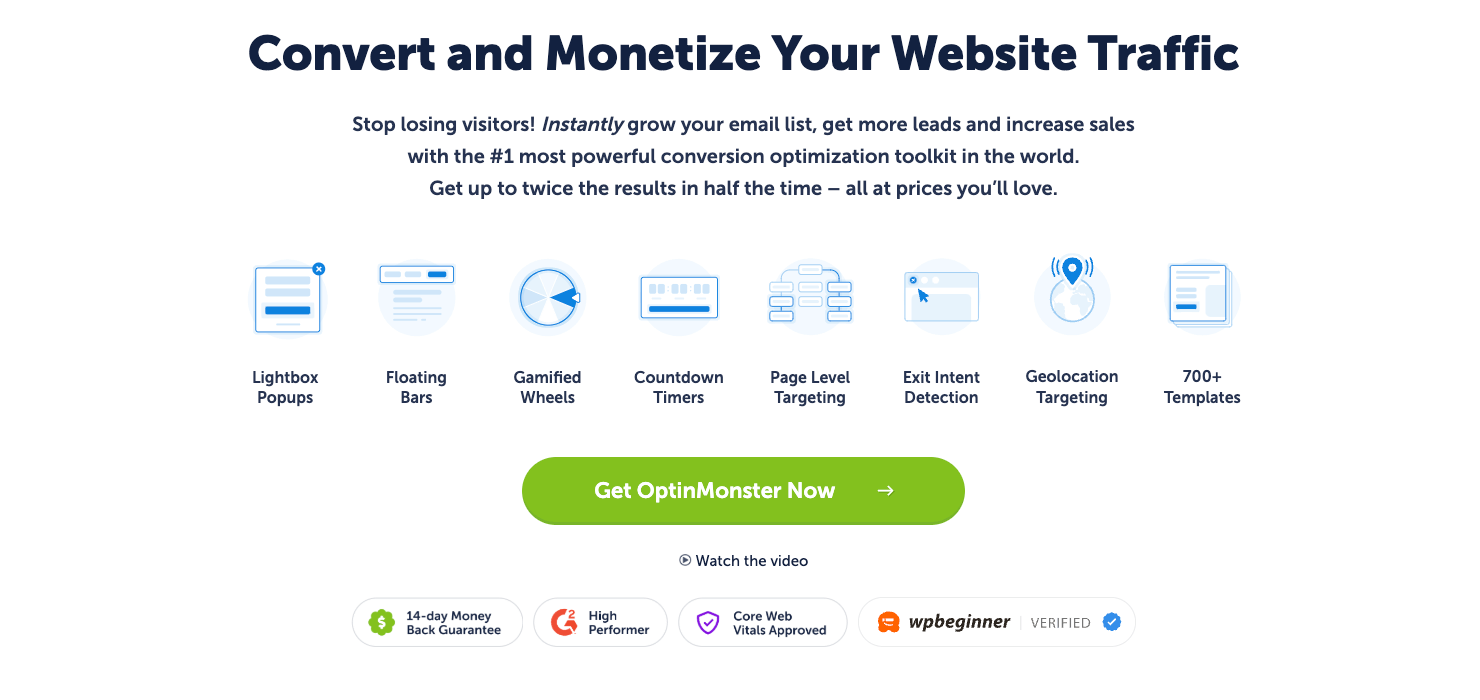
Once you understand how lead generation works, tools like OptinMonster make it easy to apply these strategies on your website.
With OptinMonster, you can create and test on-site campaigns that capture attention at the right moment. From popups and floating bars to slide-ins and spin-to-win wheels, each campaign is designed to engage visitors and encourage them to take action.
Here’s how marketers use OptinMonster to grow their lists and conversions:
- Targeted Campaigns: Show the right message to the right audience using advanced display rules like scroll depth, exit intent, and geolocation.
- No-Code Design: Build beautiful campaigns in minutes using a drag-and-drop editor and 700+ templates.
- Personalization Tools: Customize offers based on visitor behavior or traffic source to increase engagement.
- A/B Testing and Analytics: See which designs or headlines convert best and continuously optimize performance.
- Integrations That Save Time: Sync new leads directly with your email platform or CRM for instant follow-up.
AtHoc’s sales team increased sales-qualified leads by 141% using OptinMonster campaigns, while SnackNation added over 1,200 segmented leads every week. These results show how the right strategy and timing can dramatically change lead outcomes.
If you’re ready to apply what you learned, you can explore OptinMonster’s Lead Generation Case Studies to see more real-world examples.
OptinMonster pricing starts at $9/month for our Basic plan, $19/month for Plus, $29/month for Pro (our most popular plan), and $49/month for Growth.
Get Started With OptinMonster Today!
BONUS: Done-For-You Campaign Setup ($297 value) Our conversion rate experts will design 1 free campaign for you to get maximum results – absolutely FREE! Click here to get started →
Want to learn more about lead generation? Check out these guides, reviews, comparisons, and top lists!
- Best Lead Generation Software and Tools
- Proven Ways to Generate Organic Leads and Increase Traffic
- How To Automate Lead Generation in 3 Easy Steps (Tutorial)
- Best Email Lead Generation Techniques and Strategies
- B2B SaaS Lead Generation Strategies that Work
- B2B Lead Generation Best Practices
- Best Customer Relationship Management (CRM) for Small Business
Frequently Asked Questions
1. What is lead generation in marketing?
Lead generation is the process of attracting and converting people who show interest in your product or service. It involves creating value-driven content and offers that encourage potential customers to share their contact information.
2. What are the main types of leads?
The main types of leads are Marketing Qualified Leads (MQLs), Sales Qualified Leads (SQLs), Product Qualified Leads (PQLs), and Service Qualified Leads (SQLs). Each type represents a different stage of readiness to buy.
3. What is a lead generation funnel?
A lead generation funnel is a marketing framework that guides people from awareness to decision. It typically includes three stages: TOFU (awareness), MOFU (consideration), and BOFU (decision). Each stage uses different content to educate and convert leads.
4. What are the best lead generation strategies in 2025?
The most effective strategies combine inbound, outbound, and AI-powered methods. Inbound marketing attracts visitors with helpful content, outbound outreach increases brand visibility, and AI tools personalize the experience to boost conversions.
5. How can I use OptinMonster for lead generation?
OptinMonster helps you apply the strategies discussed in this guide by creating high-converting lead capture campaigns. You can design popups, slide-ins, or floating bars that target visitors at the right moment and integrate new leads directly into your CRM or email platform.
6. What makes lead generation content perform better on Google?
High-performing content focuses on people-first value. It’s written by real experts, cites reliable sources, includes visuals, and stays regularly updated. Google’s AI experiences also favor concise, structured answers that help users act quickly.
Written by Farjad Taheer
Farjad is a Senior Content Strategist at OptinMonster with over 10 years of experience in lead generation and conversion optimization. He helps marketers turn website visitors into loyal customers using proven CRO techniques.
LinkedIn

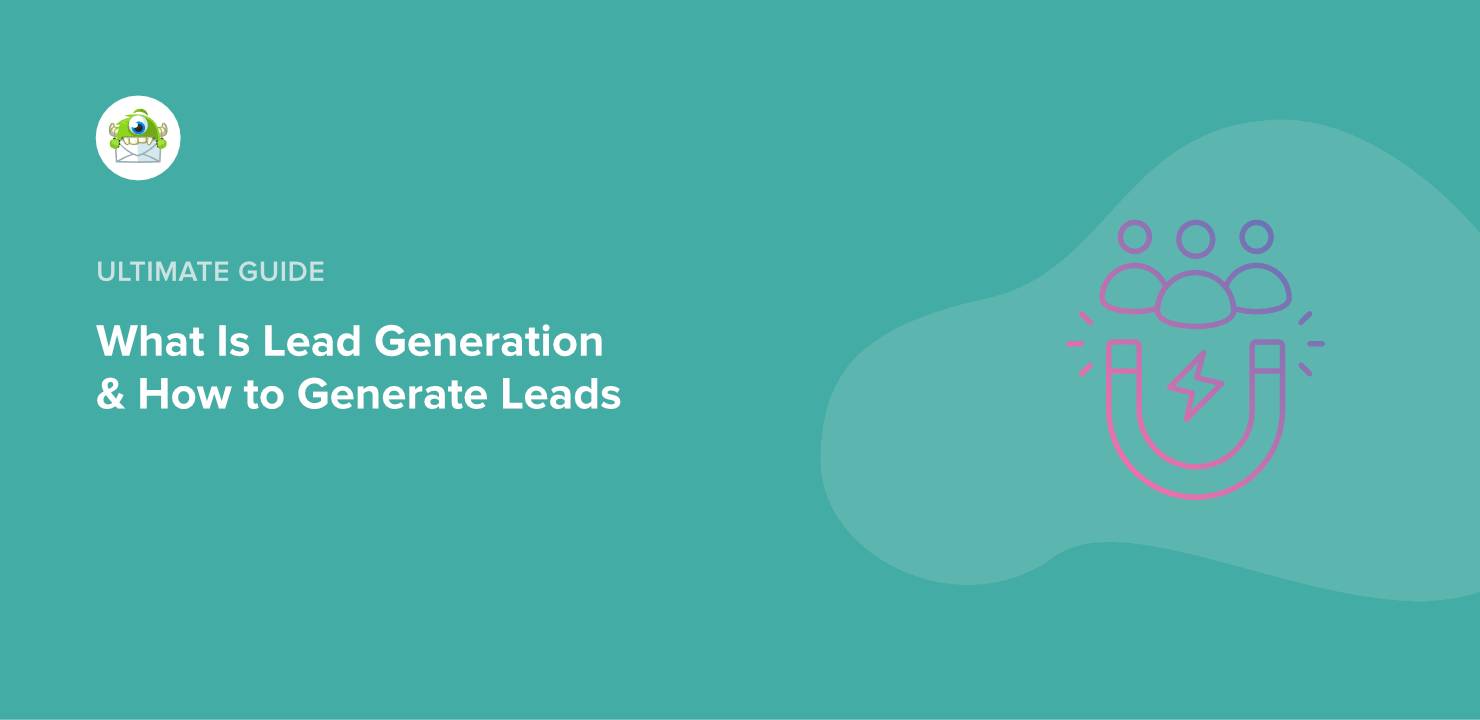
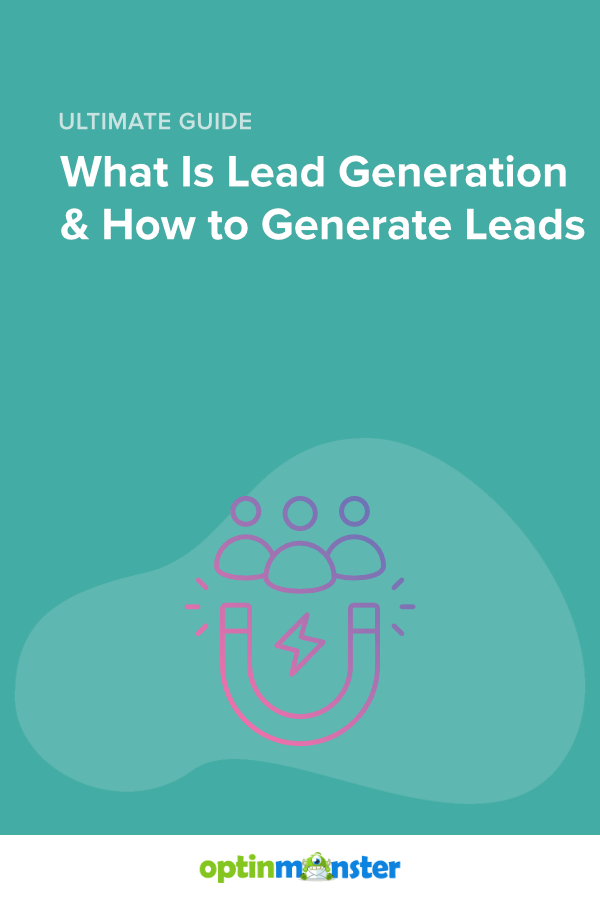



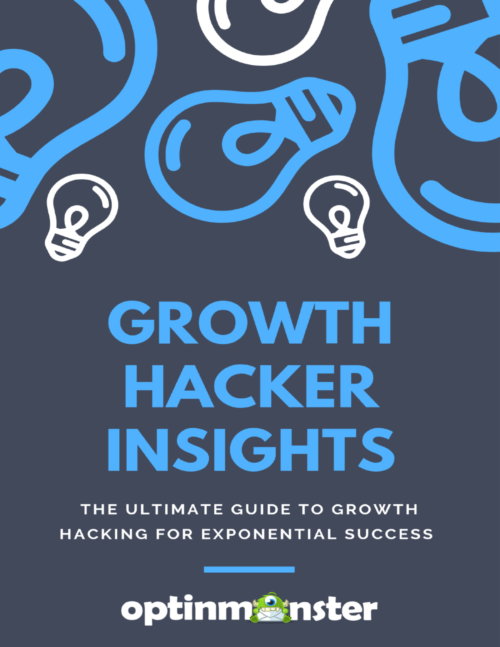
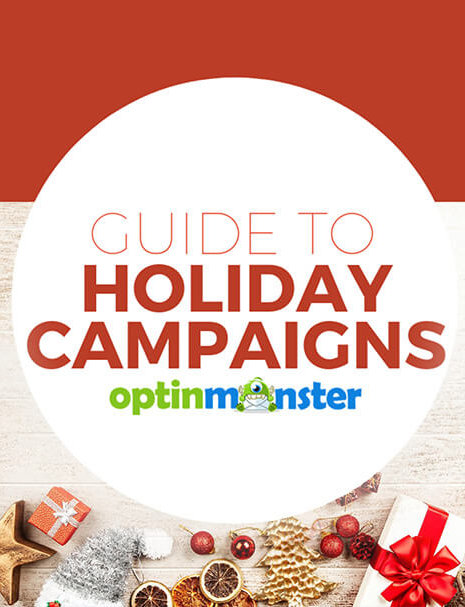
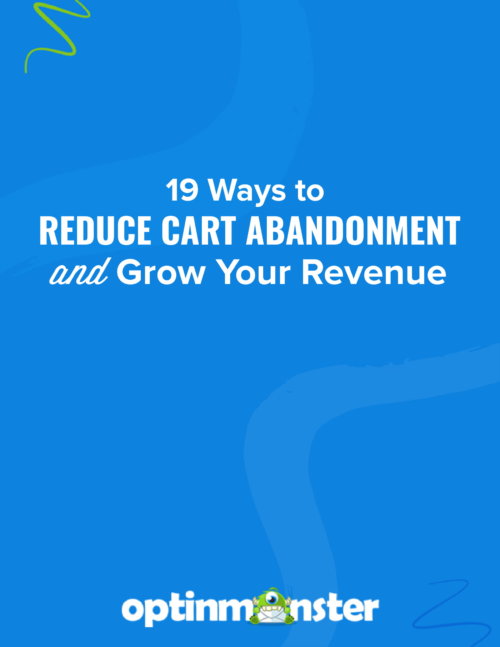



Add a Comment